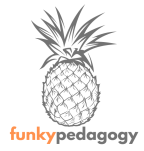How can we use KS3 to better prepare students for writing analytical essays?
I am currently teaching Blood Brothers to Year 8 and they love it. Some are passionate in their condemnation of Mrs Johnstone, others argue that she has been cruelly manipulated by Mrs Lyons. As we read the text together, they are bubbling with opinions and questions, eager to tell me how the discrimination Mrs Johnstone faces is similar to that faced by Callum in Noughts and Crosses and this, like the ranch in Of Mice and Men, is another patriarchal world. Here is evidence that our KS3 reading curriculum is doing its job: gifting students with an appreciation of literature and a rich intertextuality that builds their understanding of its central concepts and how to verbalise this with academic vocabulary.
Then I introduce the question ‘How does Russell present Mrs Johnstone in Act 1?’ and the enthusiasm is cut dead.
The students sigh. Only halfway through Year 8 and they are already suffering from analysis fatigue. And for what? For several lessons, students puzzle over the mechanics of writing an analysis essay, rather than focusing on the complexity of characters or the richness of language. I have to provide so much scaffolding that I end up marking 30 almost identical essays. The opinions, curiosity and insight of our reading lessons are nowhere to be seen when they’re translated onto the page.
It has become clear that I am asking the students to run before they can walk. They need to be explicitly taught a toolkit of academic vocabulary and sentence structures that will equip them for KS4. They need to see and understand the component parts of an essay before they can independently put them all together. With this in mind, here are my plans for building a KS3 writing curriculum that lays the foundations for meaningful academic writing.
Sentences
Alongside each text, students will be directly taught how to write academic sentences with plenty of time for deliberate practice. Inspired by Hochman and Wexler’s The Writing Revolution, these sentences will develop students’ ability to write extended answers that are rich in detail and content, whilst showing them exactly how to build an essay rather than giving them vague advice like ‘Develop your answer’ or ‘Include more references to context’.
For example, students will be taught how to use subordinating conjunctions such as although, whilst, since. Teachers will first model exactly how these sentences are put together, paying specific attention to the accuracy of grammar and punctuation. Students will then practise writing these sentences whilst developing their understanding of the text, as in the Blood Brothers example here. Mastering subordinating conjunctions will provide students with an actionable way of extending their responses and also creating sophisticated topic and concluding sentences. There is an example here of how I use subordinating conjunctions to challenge students to write assertive introductions at GCSE level.
Additionally, students will learn how to interweave extra detail and links to their contextual knowledge seamlessly into their writing with the use of appositives. An appositive is a phrase or clause that can be used to add additional detail to a noun and create complex sentences that give fluency and sophistication to students’ writing. As in the examples, this can be scaffolded by the teacher using matching activities that also review content, before students practise writing these sentences more independently.
Vocabulary
For students to fully grasp a complex word, they have to hear it, read it and use it repeatedly in its different forms. Taking away repetitive extended analytical writing at KS3 will free up more time for students to practise using tier 2 and 3 vocabulary in their own speech and written work.
This can be combined with the sentence-level work, for example in the use of because-but-so, another strategy from The Writing Revolution. These sentence stems ask students to think about a text from different angles and practise using newly learned words, as in the example here.

Most importantly, I want our curriculum to carve out more time for oracy so students feel confident making ambitious word choices. By creating more space for debate and discussion, we give students the confidence to hold their own within and beyond the classroom, something even more important after online learning has stymied conversation and interaction. Structured talk is a vital way to try out new words, develop or change opinions and learn from other viewpoints. Therefore if we invest time in this at KS3, we will be rewarded with GCSE essays that can argue a point, sustain a coherent thread and conclude with a strong personal response.
Hearing a room full of students talking about what they have read is joyful and this experience provides them time to fully appreciate and formulate their thinking on the concepts that thread through the curriculum and build the foundations that prepare them for the academic writing of KS4 and 5. As teachers, we can guide their talk to include vocabulary practice and critical thinking about a text, like in these activities:
What Next?
Breaking down analytical writing into its building blocks and making this an explicit part of our curriculum will mean that, at KS4, teachers will have a clear understanding of students’ syntactic knowledge. My hope is this leads to more carefully crafted, confident essays that focus on an appreciation of the text and its language rather than rigidly sticking to an essay writing formula. My next steps are to explore how these plans fit in with KS3 assessment and link to the creative writing curriculum. But ultimately and most importantly, it will give space to students’ engagement with literature; it will put the text at the heart of analytical writing.







